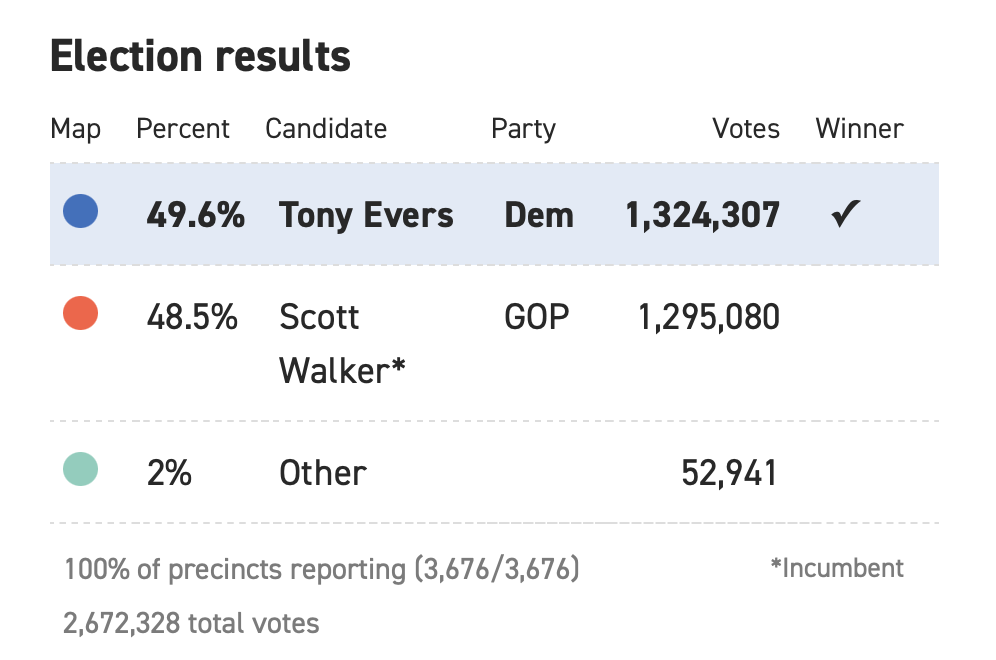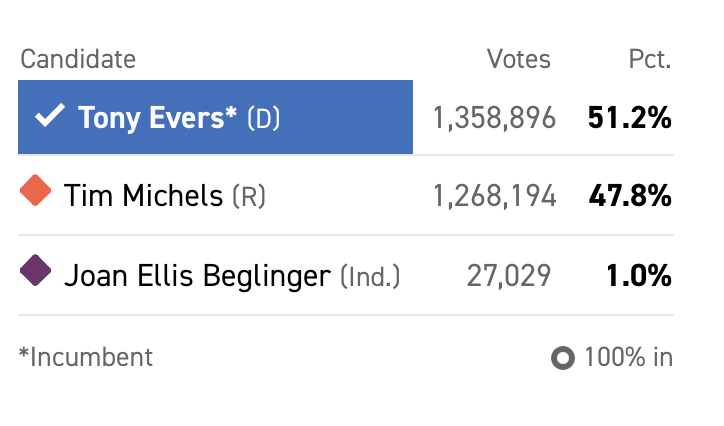Good morning.

Thursday in Whitewater will be sunny with a high of 64. Sunrise is 7:11, and sunset is 6:08, for 10 hours, 57 minutes of daytime. The moon is full, with 100 percent of its visible disk illuminated.
Whitewater’s Finance Committee meets at 5 PM, and the Community Development Authority meets at 5:30 PM.
On this day in 1781, British General Charles, Earl Cornwallis surrenders at the Battle (Siege) of Yorktown:
The British Prime Minister, Lord North, is reported to have exclaimed “Oh God, it’s all over” when told of the defeat.[87] Three months after the battle, a motion to end “further prosecution of offensive warfare on the continent of North America” – effectively a no confidence motion – passed in the British House of Commons. Lord North and his government resigned.
Anti-immigrant rhetoric often proposes with mass deportation, although in neither Wisconsin nor Whitewater is there majority support for that extreme approach. See The Curious Case of the ‘Invasion’ that Didn’t Bark in the Night and Wisconsin Polling on Immigration.
Mass deportation would be a moral failure, as wholesale detention and dispossession would be an ethic cleansing abhorrent to the reasonable & civilized. It would, secondarily, be an economic catastrophe for America.
In a review of mass deportation, Eric Boehm @ Reason writes Trump’s Deportation Plan Would Cost Nearly $1 Trillion (‘And it would wreck the economy’):
The governmental infrastructure required to arrest, process, and remove 13 million undocumented immigrants would cost nearly $1 trillion over 10 years and would deal a “devastating” hit to economic growth, according to a report published last week by the American Immigration Council (AIC). The think tank estimates that a mass deportation plan would shrink America’s gross domestic product by at least 4.2 percent, due to the loss of workers in industries already struggling to find enough labor.
Trump has promised to create a “deportation force” to round up undocumented immigrants and eject them from the country. This would entail targeting two groups: the roughly 11 million people who lacked permanent legal status as of 2022 (that’s the most recent number from the American Community Survey) and the estimated 2.3 million people who have entered the country without legal status since January 2023 (that figure come from the Department of Homeland Security).
The notion that the native born would fill jobs and gaps is false, as Boehm writes:
The costs of mass deportation would rebound into the economy in several ways. The economy would shrink and federal tax revenues would decline. The construction industry, where an estimated 14 percent of workers are undocumented migrants, would be particularly hard hit, but the effects would be felt throughout the economy.
“Removing that labor would disrupt all forms of construction across the nation, from homes to businesses to basic infrastructure,” the AIC notes. “As industries suffer, hundreds of thousands of U.S.-born workers could lose their jobs.”
That’s an important point. Immigration restrictionists often assume that deporting millions of undocumented workers would allow more Americans to fill those jobs, but the economy is not a zero-sum game. A shrinking economy would be bad news for many workers who aren’t directly impacted by Trump’s deportation plan.
The AIC’s estimates are generally in line with the estimates made earlier this year by analysts at the Penn Wharton Budget Center (PWBM), a fiscal policy think tank housed at the University of Pennsylvania. “The costs of the former president’s plan to deport the more than 14 million unauthorized immigrants in the U.S. today could easily reach more than $1 trillion over 10 years, before taking into account the labor costs necessary for such a project or the unforeseen consequences of reducing the labor supply by such drastic amounts over a short period,” reported Marketwatch, which requested the PWBM estimate.
Of the AIC report, see Mass Deportation Devastating Costs to America, Its Budget and Economy.
Mass deportation would be morally reprehensible and economically devastating.
Commuter distracted by phone survives close call with train:



